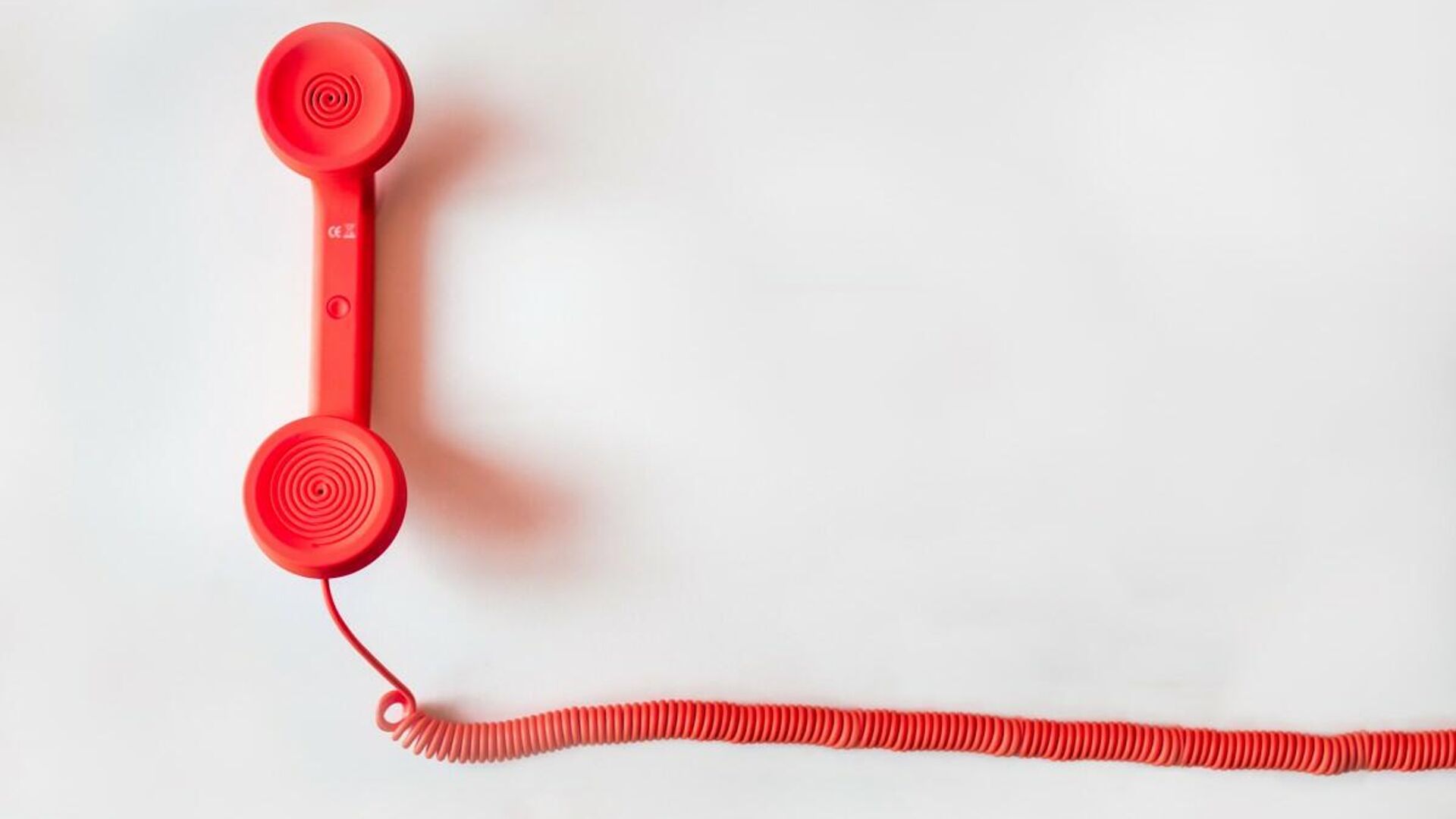https://sputnikglobe.com/20240428/an-overstimulated-younger-generation-are-now-turning-to-dumbphones-1118152204.html
An Overstimulated, Younger Generation Are Now Turning to ‘Dumbphones’
An Overstimulated, Younger Generation Are Now Turning to ‘Dumbphones’
Sputnik International
Andrey Tyukavkin, the executive direction of the branding agency behind the campaign, said the phone was designed to “deliver the basics for a great night out,” like texting and calling.
2024-04-28T05:25+0000
2024-04-28T05:25+0000
2024-04-28T13:33+0000
beyond politics
phone
technology
generation z
society
milan
heineken
cell phones
cell phone
https://cdn1.img.sputnikglobe.com/img/07e6/02/1c/1093453417_0:63:1200:738_1920x0_80_0_0_0cb79c19c633990feacabb3b936148ba.jpg
“Dumbphones” are 1990s-inspired phones that have been gaining popularity as an alternative to smartphones. And recently, the beer brand Heineken and the fashion retailer Bodega have collaborated on a dumbphone of their own: the “Boring Phone” is a translucent flip phone that was introduced at Milan Design Week 2024, which ran from April 15 to 21.The Boring Phone has been designed with translucent outer hardware, a flip screen, and green accents. Andrey Tyukavkin, the executive director of the branding agency behind the campaign, said the phone was designed to “deliver the basics for a great night out,” like texting and calling - sans the typical distractions of a smartphone.The phone even has an email app but has no memory to receive actual emails which makes “space” for the user’s social life, says Tyukavkin. The phone includes other apps that encourage the user to actually stop using their phone, including an app that encourages the user to talk to a bartender.Although, the phone may be difficult for one to actually get their hands on, as Heineken and Bodega have only produced 5,000 units and plan to distribute the phones through competitions rather than selling them.The dumbphone boom is being driven by one generation, specifically. The technology analyst Portulans Institute found that Gen Z is concerned about their privacy when online, and often feel as though their personal data is at risk.Generation Z’s suspicion of data - the attention-harvesting technologies that they have grown up with - has encouraged a wave of products centered on nostalgia, even if Gen Z can’t remember the pre-internet, (seeing as they were born between 1997 and 2012).The desire to disconnect from technology and detox is more apparent among the younger generation as well. Gen Z is the only generation whose time on social media has fallen since 2021, according to one research company. However, as nine out of 10 phones are smartphones, most dumbphones still remain a niche item.According to a 2023 report, researchers found that the average teen receives about 237 notifications per day and spends about 4.5 hours on their smartphone. Those using their phones even reported feeling a struggle to manage their smartphone use despite its negative impacts on their health and attention span.But Hannah Welan, a coordinator of the Data Poverty Lab at the Good Things Foundation charity, points out the difficulty in rolling back our advancements in technology by suggesting, “most essential services are now online – education, healthcare, universal credit.”
milan
Sputnik International
feedback@sputniknews.com
+74956456601
MIA „Rosiya Segodnya“
2024
Mary Manley
https://cdn1.img.sputnikglobe.com/img/07e6/01/0b/1092187887_0:0:2048:2049_100x100_80_0_0_0c2cc4c84f89aff034cc55bb01fb6697.jpg
Mary Manley
https://cdn1.img.sputnikglobe.com/img/07e6/01/0b/1092187887_0:0:2048:2049_100x100_80_0_0_0c2cc4c84f89aff034cc55bb01fb6697.jpg
News
en_EN
Sputnik International
feedback@sputniknews.com
+74956456601
MIA „Rosiya Segodnya“
Sputnik International
feedback@sputniknews.com
+74956456601
MIA „Rosiya Segodnya“
Mary Manley
https://cdn1.img.sputnikglobe.com/img/07e6/01/0b/1092187887_0:0:2048:2049_100x100_80_0_0_0c2cc4c84f89aff034cc55bb01fb6697.jpg
heineken, bodega, cellphones, boring phone, dumbphones, texting, calling, social media, cell phone
heineken, bodega, cellphones, boring phone, dumbphones, texting, calling, social media, cell phone
An Overstimulated, Younger Generation Are Now Turning to ‘Dumbphones’
05:25 GMT 28.04.2024 (Updated: 13:33 GMT 28.04.2024) The phones of our past may become the phones of our future.
“
Dumbphones” are 1990s-inspired phones that have been gaining popularity as an alternative to smartphones. And recently, the beer brand Heineken and the fashion retailer Bodega have collaborated on a dumbphone of their own: the “Boring Phone” is a translucent flip phone that was introduced at Milan Design Week 2024, which ran from April 15 to 21.
The Boring Phone has been designed with translucent outer hardware, a flip screen, and green accents. Andrey Tyukavkin, the executive director of the branding agency behind the campaign, said the phone was designed to “deliver the basics for a great night out,” like texting and calling - sans the typical distractions of a smartphone. The phone even has an email app but has no memory to receive actual emails which makes “space” for the user’s social life, says Tyukavkin. The phone includes other apps that encourage the user to actually stop using their phone, including an app that encourages the user to talk to a bartender.
Although, the phone may be difficult for one to actually get their hands on, as Heineken and Bodega have only produced 5,000 units and plan to distribute the phones through competitions rather than selling them.
“Other features include a torch, calendar, FM radio, and alarm. Just a few years back this was all we needed for a night out, right?” Tyukavkin says.
The dumbphone boom is being driven by one generation, specifically. The technology analyst Portulans Institute found that Gen Z is concerned about their privacy when online, and often feel as though their personal data is at risk.
“Gen Z doesn’t see tech the way other generations do,” says Tyukavkin. “The world in general is made to think that everything is constantly improving, and everyone needs to upgrade/catch up, but Gen Z have a better overview of technology—both old and new—to see what tech is actually doing for their life.”
Generation Z’s suspicion of data - the attention-harvesting technologies that they have grown up with - has encouraged a wave of products centered on nostalgia, even if Gen Z can’t remember the pre-internet, (seeing as they were born between 1997 and 2012).
“I’ve always hated being available to everyone,” said a 29-year-old former finance worker, who is now a music producer and rapper. “The idea that if you send a WhatsApp to someone and they don’t respond immediately then something’s wrong. I’ve had periods of having a smartphone but I always revert back to having a burner phone.”
The desire to disconnect from technology and detox is more apparent among the younger generation as well. Gen Z is the only generation whose time on social media has fallen since 2021, according to one research
company. However, as nine out of 10 phones are smartphones, most dumbphones still remain a niche item.
“There is evidence of this generation modifying their smartphone behavior, with concerns around the negative impacts of being constantly digitally connected driving this,” said Joe Birch, a technology analyst at the research firm Mintel. “Three in five gen-Zers say they’d like to be less connected to the digital world, for instance.”
According to a 2023 report, researchers found that the average teen receives about 237 notifications per day and spends about 4.5 hours on their smartphone. Those using their phones even reported feeling a struggle to manage their smartphone use despite its negative impacts on their health and attention span.
But
Hannah Welan, a coordinator of the Data Poverty Lab at the Good Things Foundation charity, points out the difficulty in rolling back our advancements in technology by suggesting, “most essential services are now online – education, healthcare, universal credit.”





